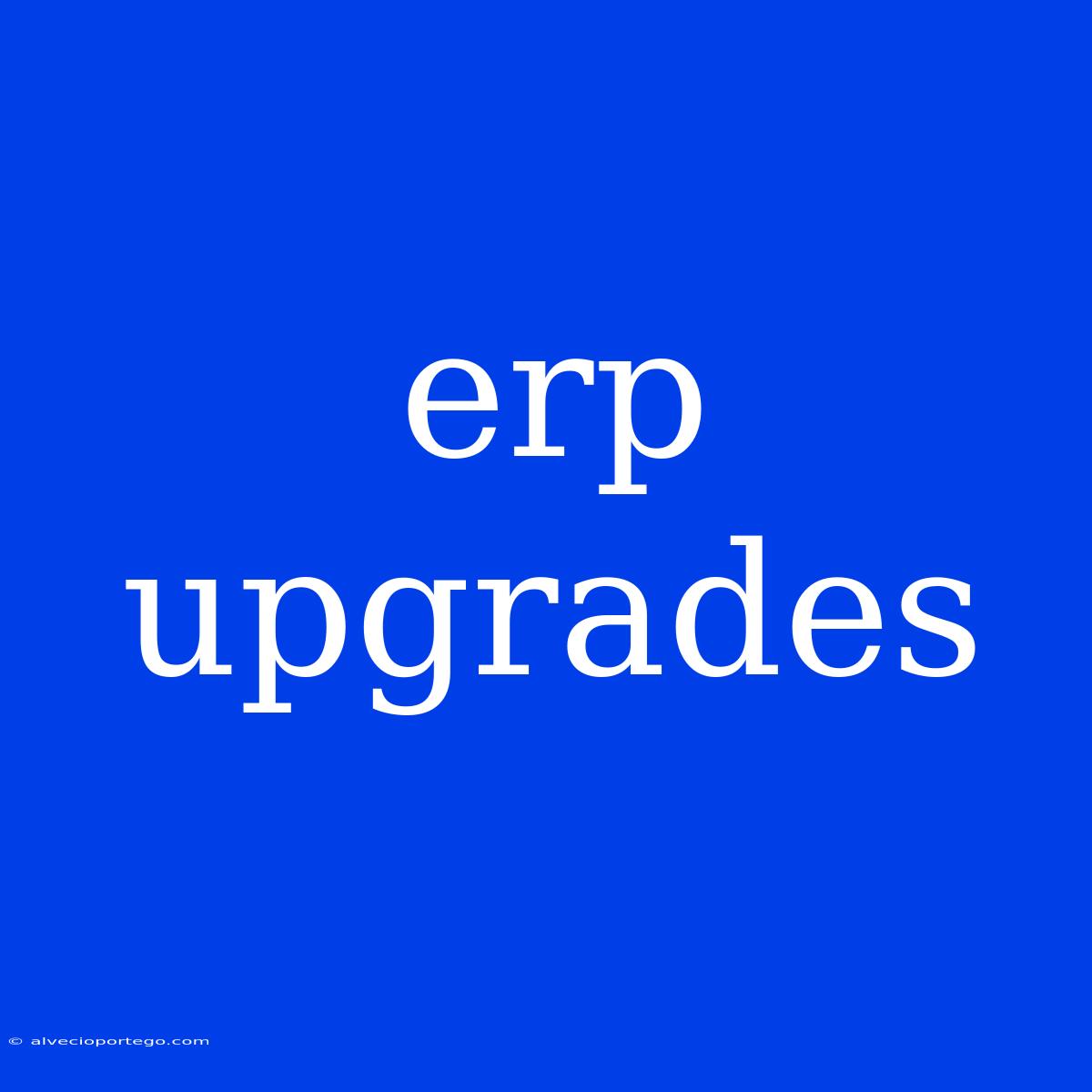ERP Upgrades: A Guide to Navigating the Process Successfully
Enterprise Resource Planning (ERP) systems are the backbone of many modern businesses, managing everything from finance and inventory to customer relations and human resources. However, as your business evolves and technology advances, your ERP system may not be able to keep pace.
This is where ERP upgrades come into play. They are a crucial process for organizations looking to stay competitive and efficient, but can also be complex and time-consuming. This article will guide you through the process of planning, executing, and optimizing your ERP upgrade.
Why Upgrade?
There are numerous reasons why businesses consider ERP upgrades:
- Improved Functionality: New versions of ERP software typically come with updated features, functionalities, and integrations that can enhance your business processes.
- Enhanced Security: Upgrades often address security vulnerabilities, making your system more robust and protected from cyber threats.
- Increased Efficiency: Upgraded systems can streamline your workflows, automate tasks, and boost overall productivity.
- Better Reporting and Analytics: Modern ERP systems offer advanced reporting and analytics capabilities, providing valuable insights for informed decision-making.
- Compliance with Industry Regulations: Upgrades can ensure compliance with new or updated industry regulations and standards.
- Integration with New Technologies: Upgraded systems can seamlessly integrate with emerging technologies such as cloud computing, AI, and the Internet of Things (IoT).
Planning for Success:
Before embarking on an ERP upgrade, meticulous planning is essential. This includes:
- Defining Your Goals: Clearly articulate your business objectives for the upgrade, such as improved efficiency, enhanced reporting, or better security.
- Assessing Your Current System: Conduct a thorough analysis of your existing ERP system, identifying its strengths, weaknesses, and areas for improvement.
- Evaluating Upgrade Options: Research and compare different upgrade paths, including on-premise, cloud-based, or hybrid solutions.
- Building a Budget: Estimate the costs associated with the upgrade, including software licenses, implementation services, training, and potential downtime.
- Communicating with Stakeholders: Engage all key stakeholders, including users, IT personnel, and management, to ensure alignment and minimize disruption.
- Choosing the Right Implementation Partner: Select a reputable implementation partner with proven expertise in ERP upgrades and a strong understanding of your industry.
The Upgrade Process:
The upgrade process itself can be divided into several key stages:
- Project Planning and Scoping: This stage involves defining the project scope, timeline, budget, and key milestones.
- Data Migration: Carefully migrating your existing data to the new system is crucial to avoid disruptions and ensure data integrity.
- System Configuration: Configure the new ERP system according to your business requirements, including workflows, user roles, and reporting parameters.
- Testing and Validation: Conduct thorough testing to ensure the upgraded system functions as expected and meets your business needs.
- Training and Deployment: Train users on the new system, and deploy it in a phased or staged approach to minimize impact.
- Post-Deployment Support: Provide ongoing support and maintenance to address any issues and ensure smooth operation of the upgraded system.
Optimizing Your ERP Upgrade:
To maximize the benefits of your ERP upgrade, consider these strategies:
- Prioritize User Adoption: Encourage and facilitate user adoption by providing adequate training, resources, and ongoing support.
- Leverage Data Analytics: Utilize the advanced analytics capabilities of your new ERP system to gain valuable insights, optimize processes, and drive better decision-making.
- Embrace Continuous Improvement: Regularly assess the performance of your upgraded system, identify areas for improvement, and make necessary adjustments to optimize its effectiveness.
- Stay Informed about Updates: Keep abreast of new features, functionalities, and security updates released for your ERP system to ensure optimal performance and security.
Conclusion:
ERP upgrades are an important investment for businesses that want to remain competitive and efficient. By carefully planning, executing, and optimizing the upgrade process, you can maximize the benefits and ensure a seamless transition to a more robust and powerful ERP system that will support your future growth and success.

